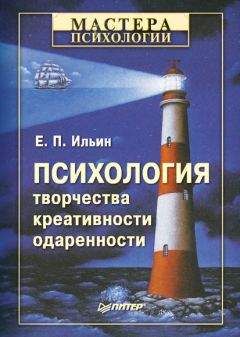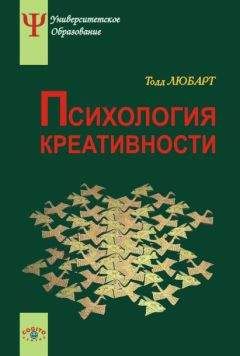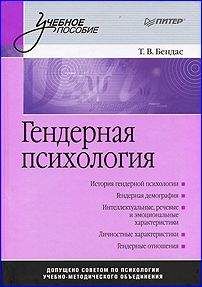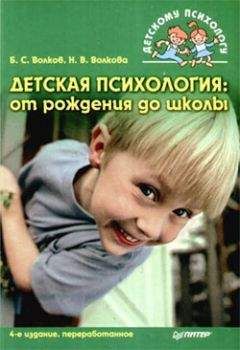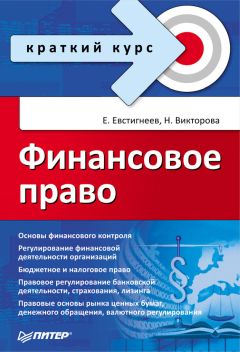basic beliefs and ratio-bias phenomenon // Journal of Personal and Social Psychology. 1999. V. 76.
№ 6. P. 972–987.
Papalia D., Olds S. Psychology. NY. McGraw-Hill. 1988. Parnes S. J. Guidebook for Creative Thinking. NY. 1963.
Parnes S. J. Educations and creativity // P. E. Vernon (ed.). Creativity, L. 1972.
Parnes S.J., Meadow A. Developmental of Individual Ctreative Talent // C. W. Taylor, F. Barron (eds.).
Scientific Creativity. NY. London. J. Willey. 1963. Percins D. N. The possibility of invention // R. Sternberg, T. Tardif (eds.). The nature of creativity.
Cambridge. Cambridge University Press. 1988. P. 362–385. Perki C. W. An Experimental Study of Imagination // American Journal of Psychology. 1910. № 21. Piage J. La formation du symbole chez l'enfant. Neuchatel. Delachaux et Niestle. 1945. Pickford R. An experiment on insight // British Journal of Psychology. 1938.
Plomin R. Nature and nurture: An introduction to behavior genetics. Pacific Grove, CA, Brooks / Cole. 1990.
Polany M. Logic and psychology // American Psychologist. 1968. V. 23. № 1. P. 27–43.
Post F. Creativity and psychopathology: A study of 291 world-famous men // British Journal of
Psychiatry. 1994. V. 165. P. 22–34.
Price B. Primary biases in twin studies, review of prenatal and natal difference-producting factors in
monozygotic pairs // American Journal of Human Genetics. 1950. V. 2. № 4. Price D. K. Sciencesince Babilon. NY. 1961 .
Rascin E. Comparison of selenitic and literary ability: a biographical study of eminent scientists and man of letters on the nineteenth century // Journal of abnormal Psychology. 1936. V. 31. P. 20–35.
Ray M, Myers R. Practical intuition // W.H. Agor (ed.). Intuition in organization: Leading and managing productively. Newbury Park, CA, Sage, 1989.
Razik T. A. Psychometric Measurement of Creativity // P. E.Vernon (ed.). Creativity. L. 1972.
Reber A. S. Implicit learning and tacit knowledge // Journal of Experimental Psychology: General. 1989. V. 118. P. 219–235.
Reber A. S., Walkenfeld F. F., Hernstadt R. Implicit and explicit learning: Individual differences and IQ // Journal Experimental Psychology: Learning, Memory and Cognition. 1991. V. 1. P. 888–896.
Renzulli J. S. The tree-ring conception of giftedness: A developmental model for creative productivity // R. I. Sternberg, J. E. Davidson (eds.). Conceptions of giftedness. Cambridge. Cambridge University Press. 1986. P. 53–92.
Roe A. A Psychologist exsamines sixty-four eminent scientists // Scientific American. 1952. V. 187.
Rogers C. R. Towards a theory of creativity // P. E. Vernon (ed.). Creativity, L. 1972.
Rokeach M. In Pursuit of the Creative Process // G. A. Steiner (ed.). The Creative Organizaqtion.
Chicago. University of Chicago Press. 1965. Rorbach M. A. La pensee vivante. Regles et techniques de la pensee creatice. Paris. 1959. Rothenberg A. The Emerging Goddes: The Creative Process in Art, Science and other Fields. Chicago.
Chicago University Press. 1979. Rotter G. S., Portugal S. M. Group and individual effects in problem solving // Journal of Applied
Psychology. 1969. V. 53 (4). P. 338–341. Rugg H. Imagination. NY. Harper and Row. 1953.
Runco M. A. Childrens divergent thinking and creative ideation // Developmental Review. 1992. V. 12.
P. 233–264.
Runco M. A. Personal creativity: Lessons fromj literary critism // L. Dorfman et al. (eds.). Emotion, creativity and art. V. 1. Perm. Perm State Institute of Arts and Culture. 1997. P. 305–317.
Runco M. A., Sakamoto S. O. Experimental studies of creativity // R. J. Sternberg (ed.). Handbook of creativity. NY. Cambridge University Press. 1999. P. 62–92.
Sadker M., Sadker D. Is the OK Classroom OK? // Phi Delta Kappan. 1985. № 55. P. 358–367. Sadler-Smith E. Intuition-analysis style and approaches to studying // Educational Studies. 1999. V. 25.
№ 2. P. 159–174. Sartre J. L'imaginaire. Gulimard. 1940. Schachtel E. G. Metamorphosis. NY. Basic Books. 1959.
Schneider F. W., Delaney J. G. Effect of individual achivement motivation on group problem solving
efficiency // Journal of Social Psychology. 1972. V. 86 (2). P. 291–298. Shirley D. A., Langan-Fox J. Intuition: A review of the literature // Psychological Reports. 1996. V. 79.
P. 563–684.
Shock N. W. The age problem in research workers: psychological viewpoint // Scientific Monthly. 1951. V. 72. Shouksmith C. Intelligence, creativity and cognitive style. NY. Wiley-interscience. 1970. Shuter-Dyson R. Le probleme des interactions entre heredite et milieu dans formation des aptitudes
musicales // A.Zenatti (ed.). Presse Universitaire de France. 1994. P. 211–249. Shuter-Dyson R., Gabriel C. The Psycholoogy of Musical Ability. London-NY. Methuen. 1981. Sen A. K., Hagtvet K. A. Correlations among creativity, intelligence, personality and academic achivement //
Perceptual and Motor Skills. 1993. V. 77 (2). P. 497–498. Silveira J. Incubation: The effect of interruption timing and length on problem solution and quality of
problem processing (цит. По: М. Айзенк. 2004. С. 345). Silverman L. K. What happens in the gifted girls? // C. J. Maker (ed.). Critical issues in gifted education:
Defensible programs for the gifted. Rockville, MD. Aspen. 1986. P. 281–317. Sim K. S., Duffy A. H. Knowledge transformers – a link between learning and creativity // AID-02
Workshop on Learning and Creativity. 2002. P. 1–10. Simon H. A. Making management decisions: The role of intuition and emotion // Acad. of Manag.
Executive. 1987. V. 1. № 1. P. 57–64. Simonton D. K. Genius, creativity and leaderships: Psychometric inquires. Cambridge. 1984. Simonton D. K. Creativity, leadership and chance // R. Sternberg, T. Tardif (eds.). The nature of
creativity. Cambridge. Cambridge University Press. 1988. P. 76–98. Simonton D. K. Individual differences, developmental changes and social context // Behavioral and Brain
Science. 1994. V. 17. P. 552–553. Simonton D. K. Talent and its development: An emergenic and epigenetic model // Psychological Review.
1999. V. 3. P. 435–457.
Simonton D. K. Creativity: Cognitive, personal, developmental and social aspects // American
Psychologist. 2000. V. 55. P. 151–158.
Singer J. L. Daydreaming: An introduction to the experimental study of inner experience. NY. Random
Housw. 1966.
Sinnot E. W. The creativeness of life // H. H.Anderson (ed.). Creativity and its cultivation. NY. Harper. 1959. Sloboda J. A. The acquisition of musical performance expertise: deconstructing the «talent» account of
individual differences in musical expressivity // K. A. Ericson (ed.). The road to excellence: the
acquisition of expert performance in the arts and sciences. Erlbaum. 1996. Smith S. M. Fixation, incubation and insigth in memory and creative thinking // S. M. Smith, T. B. Ward,
R. A. Finke (eds.). The creative cognition approach. Cambridge, MA. Bradford. 1995. P. 135–156. Smith S. M., Blankenship S. E. Incubation effects // Bulletin of the Psychonomic Society. 1989. V. 27.
P. 311–314.
Smith S. M., Blankenship S. E. Incubation and the persistence of fixation in problem solving // American
Journal of Psychology. 1991. V. 104. P. 61–87. Spender S. The making of a poem // P. Vernon (ed.). Creativity. NY. Penguin Books. 1972. Spitz H. H. The role of unconscious in thinking and problem solving // Educational Psychology. 1993. V.
13. № 3–4. P. 229–244.
Sprecher T. B. Proposal for Identifyng the Meaning of Creativity // C. W. Taylor, F. Barron (eds.).
Scientific Creativity. NY. 1963. Stein M. J. Creativity and Scientists // The National physical laboratories. The Direction of Research
establishments, L. 1957. № 3. Stein M. J., Heinze S. J. Creativity and the individual. Glencoe. Free Press. 1960.
Sternberg R. General intellectual ability // R. Sternberg (ed.). Human abilities. 1985. P. 5–31. Sternberg R. A three-facet model of creativity // R. Sternberg, T. Tardif (eds.). The nature of creativity.
Cambridge. Cambridge University Press. 1988. P. 125–147. Sterberg R. J., Davidson J. E. The mind of the puzzler // Psychology Today. 1982. V. 16. P. 37–44. Sternberg R., Lubart T. I. Defying the croud: Cultivating creativity in a culture of conformity. NY. Free
Press. 1995.
Sternberg R. J., Lubart T. I. Investing in creativity // American Psychologist. 1996. V. 51. P. 677–688. Sternberg et al. Practical intelligencein everyday life. NY. Cambridge University Press. 2000. Stevens R. The age problem in research workers: viewpoint of the research administrator // Scientific Monthly. 1951. V. 72.
Storfer M. D. Intelligence and giftedness. The contributions of heredity and early environment. San
Francisco. Oxford. Jossy-Bass Publ. 1990. Subotnik R. F., ArnoldK. D. (eds.). Beyond Terman: Contemporary longitudinal studies of giftedness and
talent. Norwood. Ablex Publ, Co. 1994. Sweeney E.J. Sex differences in problem solving. Stanford Univ., Dept. Psychol., Tech. Rep., № 1. Dec. 1.
1953.
Taylor C. W. (ed.). Creativity. Progress and potential. NY. 1964.
Taylor C. W. Cultirating multiple creative talents in students // Journal for the Education of the Giften. 1985. V. 8. P. 187–198.
Taylor C. W. Various approaches to and definions of creativity // R. Sternberg, T. Tardif (eds.). The nature
of creativity. Cambridge. Cambridge University Press. 1988. P. 99–126. Taylor C. W., Ellison R. Z. Prediction of creativity with the biographical inventory // P. E. Vernon (ed.).
Creativity, L. 1972.
Taylor C. W., Terman L. M. Perspectives of creativity: The intelligencequotient of F. Galton in childhood,
1917 // Studies in individual differences. NY. 1961. P. 134–139. Taylor H. F. The IQ game: A methodological inquiry into the heredity environment controversy. New
Brunswick. N.Y. Rutgers University Press. 1980. Tardif T., Sternberg R. What we know about creativity? // R. Sternberg, T. Tardif (eds.). The nature of
creativity. Cambridge. Cambridge University Press. 1988. P. 429–446. Terman L. M. The discovery and encouragement of exceptional talent // American Psychologist. 1954.
V. 9. P. 221–238.
Terman L. M. Psychological Approaches to the biography of genius // P. E. Vernon (ed.). Creativity, L. 1972. Tomkins S. S. Affect, immagery, consciousness. V. 1. The positive affects. NY. Springer. 1962. Thompson C., Dowding D. Responding to uncertainty in nursing practice // International Journal of
Nursing Studies. 2001. V. 38. № 5. P. 609–615. Thornton C. Connectionism, creativity and guided walks // T. Dartnall (ed.). Artificial Intelligence and
Creativity. Kluver Academic Publishers. 1994. P. 211–215. Torrance E. P. Guiding creative talent. Englewood Cloffs. NY. Prentice-Hall. 1962. Torrance E. P. Scientific views of creativity and factors affecting its growth // Deaduls: Creativity and
Learning. 1965. P. 663–679.
Torrance E. P. Rewarding creative behavior. Prentice-Hall. 1965.
Torrance E. P. Torrance test of creative norms: Technical manual. Princeton. NY. Personnel Press. 1966. Torrance E. P. Torrance test of creative thinking: Directions manual and scoring quide. Lexington, 1974 (а). Torrance E. P. Norms-thechnical mannual Torrance test of creativity thinking. Figural test E. P. Torrance.
Regional Press Linn and Company. 1974 (b). Torrance E. P. Growing up creatively gifted: A 22-year longitudinal study // Creative Child and Adult
Quarterly. 1980 (a). V. 5. P. 148–170. Torrance E. P. Creativity and futurism in education: Retooling // Education. 1980 (b). V. 100. P. 298–311. Torrance E. P. The nature of creativity as manifest in its testing // R. J. Sternberg, T. Tardif (eds.). The
nature of creativity: Contemporary psychological perspectives. Cambridge. Cambridge University
Press. 1988. P. 43–75. Treadwell Y. Humor and creativity// Psychologcal Reports. 1970. V. 26 (1). P. 55–58. Trojanowska-Kaczmarska A. Dziecko i tworczosc. Warshawa. PAN. 1971.
Tversky A., Kahneman D. Judgement under uncertainty: Heuristics and biases // Sciently. 1974. V. 185.
№ 4157. P. 1124–1131. Vaughan F. E. Awakening intuition. Garden Sity, NY, Anchor Books / Doubleday. 1979. Vernon P. E. Psychological studies on creativity // Journal of Child Psychology and Psychiatry. 1967. V. 8.
P. 135–165.
WakefieldJ. The outlook for creativity test // Journal of Creative Behaviour. 1991. V. 25. P. 184–193. Walberg H.J. Creativity and talant as learning // R. J. Sternberg, T. Tardif (eds.). The nature of creativity:
Contemporary psychological perspectives. Cambridge. Cambridge University Press. 1988. P. 340–361. Walker B. A., Reis S. M., Leonard J. S. A developmental investigation of the lives of gifted women // Gifted
Child Quarterly. 1992. V. 36. № 4. P. 201–206. Wallach M. A. Creativity // Carmishael's Manual of Child Development. NY. 1970. P. 1211–1272. Wallach M. A. Creaqtivity testing and giftedness // F. D. Horowitz, M. O'Brien (eds.). The gifted and
talented. Developmental Perspectives. Washington, DC. American Psychological Association. 1985. Wallach M. A., Kogan N. A. A new look at the creativity – intelligence distinction // Journal of
Personality. 1965. V. 33. P. 348–369. Wallach M. A., Kogan N. A. Modes of thinking in young children: A study of the creativity-intelligence
